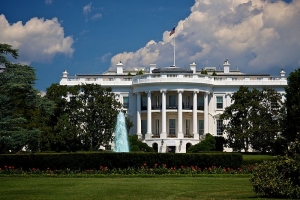
 After many months of hearing both presidential candidates talk about their plans for rebuilding the nation’s aging infrastructure, there is now doubt about whether this will really happen.
After many months of hearing both presidential candidates talk about their plans for rebuilding the nation’s aging infrastructure, there is now doubt about whether this will really happen.
According to a recent poll, a majority of Americans oppose the idea. Sixty-six percent of respondents in a recent Washington Post-ABC News poll say they “strongly” oppose President-elect Donald Trump’s plan to offer $140 million in federal tax credits to private investors that invest in critical infrastructure projects. However, many believe that the negative results from respondents may have been obtained by questions that were at best “biased.”
The poll sampled 1,005 adults by phone between Jan. 12-15 and callers explained that Trump’s plan would mean that private-sector investors could then charge tolls on roads and bridges. That type of questioning almost guarantees a negative reaction. It is well known that users don’t find tolls or fees of any kind appealing. And, since Trump has not yet laid out his plan, there are no numbers to quote.
Trump vowed to get his infrastructure rebuilding program off the ground during his first 100 days in office. His transition team seems to be trying to make that promise a reality.
Elaine Chao, Trump’s nominee to lead the U.S. Department of Transportation (DOT), echoed Trump’s calls to repair the nation’s crumbling infrastructure in her confirmation hearing. She told senators she wanted to establish an infrastructure “task force.”
Martin Whitmer, founding partner of Whitmer & Worrall, has been designated as Trump’s transportation transition leader and he is extremely experienced in programs of this type. He most recently served as the deputy chief of staff at DOT. President George W. Bush appointed him to serve as special assistant to then-DOT Secretary Norman Mineta, and in that role he was responsible for 60,000 employees and a budget of $54 billion.
Since Trump has yet to sketch out his plan in detail, opponents have had ample time to drum up opposition, which is not all that difficult to do with any issue. In fact, it is hard to find an issue that both parties can agree on today.
Trump’s draft blueprint that was laid out during the campaign said that tax credits would be granted in the hopes of unlocking $1 trillion in private-sector investment for critical infrastructure projects. He argued that investments from the private sector would cost taxpayers much less than any other option. The funding would be allocated to critical infrastructure projects related to roads, bridges, airports, ports, energy, broadband, etc. – all of the public assets that keep the U.S. competitive globally. Former U.S. Secretary of State and presidential candidate Hillary Clinton had a similar plan.
Some critics argue that investors will want to be repaid too much for their investments. Other detractors claim that the federal government has too much debt and tax credits would be detrimental to revenues in the future. Others advocate for public-private partnerships where no federal involvement is necessary at all. There are many areas of controversy about how to preserve the country’s public assets. But, there is little disagreement about the fact that America’s infrastructure problems are critical.
There is also little disagreement about the jobs that would be created and the economic stimulus that would be felt in every state if the government finds a way to rebuild its infrastructure.
If Congress can find a way to support, and incentivize, private investment in infrastructure, the U.S. will feel the impact immediately. If Congress fails, the negative impact will be felt just as quickly as America begins to experience the results of losing its leadership role in the global economy.
Congress and the President must find a way to work together and launch some type of program that begins to repair the nation’s infrastructure.
